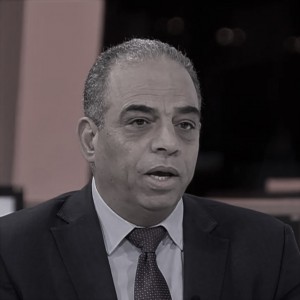
Financing Development: Between Global Decline and Fair Aspirations - Ahmad Awad
Ahmad Awad

Financing Development: Between Global Decline and Fair Aspirations - Ahmad Awad
Today, financing development has become a primary focus of international discussions, especially as the Fourth International Conference on Financing for Development approaches. Scheduled for next June in Seville, Spain, this conference comes at a critical juncture for the global development financing system, amid a marked decline in commitments by wealthy countries and a worrying shift in support mechanisms from aid and grants to loans and trade, threatening the future of development in the countries of the Global South.
The preparatory meetings held last February at the UN headquarters in New York represented a pivotal moment for reevaluating existing financial and financing policies and redirecting the global debate toward fair and more sustainable solutions. The presence of civil society, including the Arab NGO Network for Development, played a pivotal role in this process. These networks conveyed the voices of the peoples of the Global South and their aspirations for human rights-based development, emphasizing the need to respect the North's commitments to the Global South, especially in light of the growing economic, environmental, and humanitarian crises.
One of the most worrying indicators discussed during the preparatory meetings was the significant decline in development assistance provided by wealthy countries. It has fallen below 0.35% of their GNP, now half the 0.7% they previously pledged. This decline reflects a lack of commitment and poses a real threat to achieving the SDGs, particularly in low- and middle-income countries. Several wealthy countries have also announced that they will review their financing policies.
On the other hand, civil society concerns about using funding as a political tool for extortion have emerged. The US aid freeze was seen as a blatant threat to international humanitarian law and human rights, and a violation of the various principles of cooperation and solidarity advocated in international discourse, both within and outside the UN.
Furthermore, the funding policies of donor countries are undergoing radical transformations, increasingly shifting towards lending rather than grants. Slogans such as "no to aid, yes to trade" are utilized to embellish the retreat from historical responsibilities. However, this shift carries significant risks, most notably deepening the debt burden of developing countries and reducing their fiscal space, making them more fragile and less able to meet the needs of their people.
Loans carry significant costs and risks. They lead to increased debt service costs at the expense of spending on health, education, and infrastructure. In the absence of effective compensatory policies, developing countries are heading toward greater poverty, unemployment, and social injustice. The decline in development funding poses an existential threat to basic service programs, especially in countries that rely heavily on external funding to ensure the continuity of these programs.
In this context, ANND played an active role in enriching the discussions and contributing to amending the draft outcome document of the Fourth International Conference. It included several recommendations and demands to reorient development policies toward justice and rights. An emphasis was placed on the need to reform the international financial and economic architecture, making it more democratic and just, thus enhancing its resilience in the face of crises, while recognizing the UN's pivotal role in global economic governance.
Emphasis was also placed on addressing inequalities within and between countries, and on the importance of integrating communities into the development process through human rights-based policies based on the principle of effective participation of rights holders. Other points included reforming tax systems to make them more equitable and ensuring that countries have domestic resources to spend on development goals, entailing more reliance on progressive income taxes and combating tax evasion and avoidance.
ANND also focused on a clear commitment to supporting productive sectors and creating decent job opportunities, while respecting international labor standards, and ensuring equal wages, trade union rights, and social protection to emphasize the shift toward inclusive and sustainable development.
ANND also provided extensive comments on the conditions required for blended finance initiatives, calling for strict standards that ensure transparency and accountability, respect human rights, and consider the interests of developing countries, particularly in vital public sectors such as health and education.
The sovereign debt issue, which has become a significant obstacle to development, received special attention. ANND emphasized the need to activate effective and fair debt restructuring mechanisms that ensure the preservation of people's social and economic rights and the ability to finance public services. Proposals were presented to establish an international committee within the UN to regulate the work of credit rating agencies, which are accused of adopting unfair standards against countries in the Global South and inflating risks to serve the interests of investors at the expense of development.
The upcoming conference in Seville represents a pivotal opportunity to redraw the map of development financing. A just development future cannot be built without a genuine commitment from wealthy countries to their historical responsibilities, and aid cannot be allowed to be diverted into political pressure or leverage for geopolitical interests.
Today, clear decisions are required to ensure aid continuity, enhance its effectiveness, and empower developing countries to control their development paths by supporting local policies, promoting fiscal justice, reducing reliance on debt, and strengthening democratic practices and governance. Moreover, genuine partnership between the North and the South is not achieved by imposing conditions but through dialogue and cooperation based on common interest and respect for national sovereignty.
Justice in development financing is not a political luxury, but rather a fundamental condition for the survival of humanity and human dignity. Unless international discourse is transformed into enforceable commitments, the future of development will remain subject to political and economic fluctuations. The active role played by global civil society organizations and their networks in the development financing process may serve as a model in defending the interests of the peoples of the South and in striving to build a more just and equitable global economic order.
Recent publications

